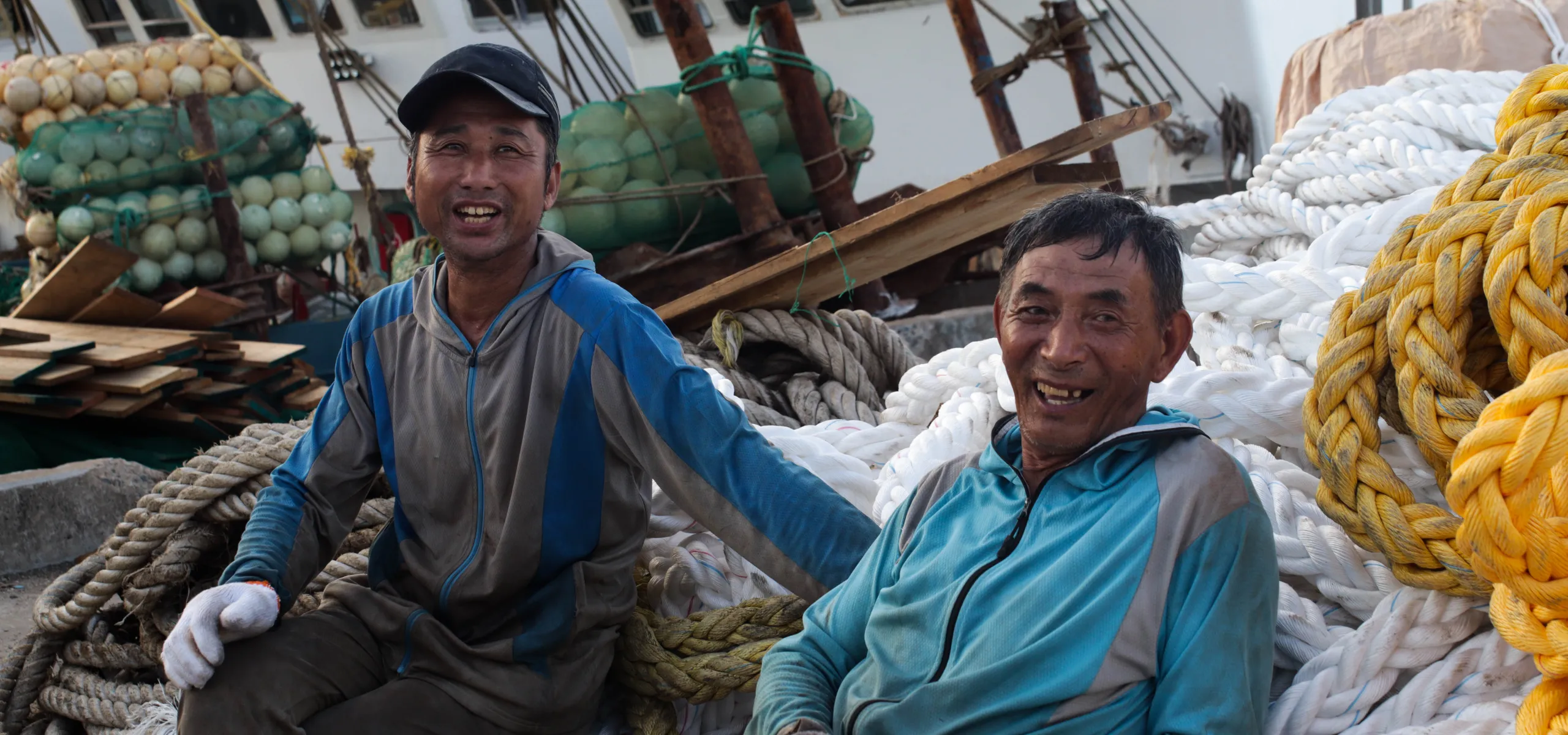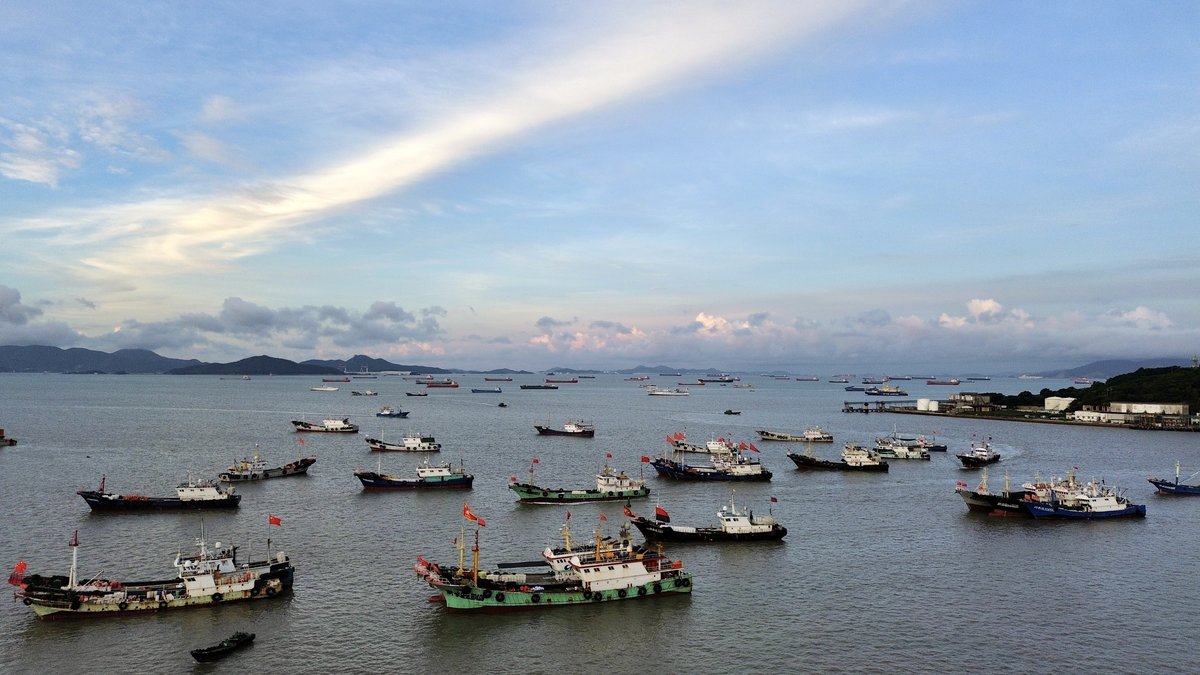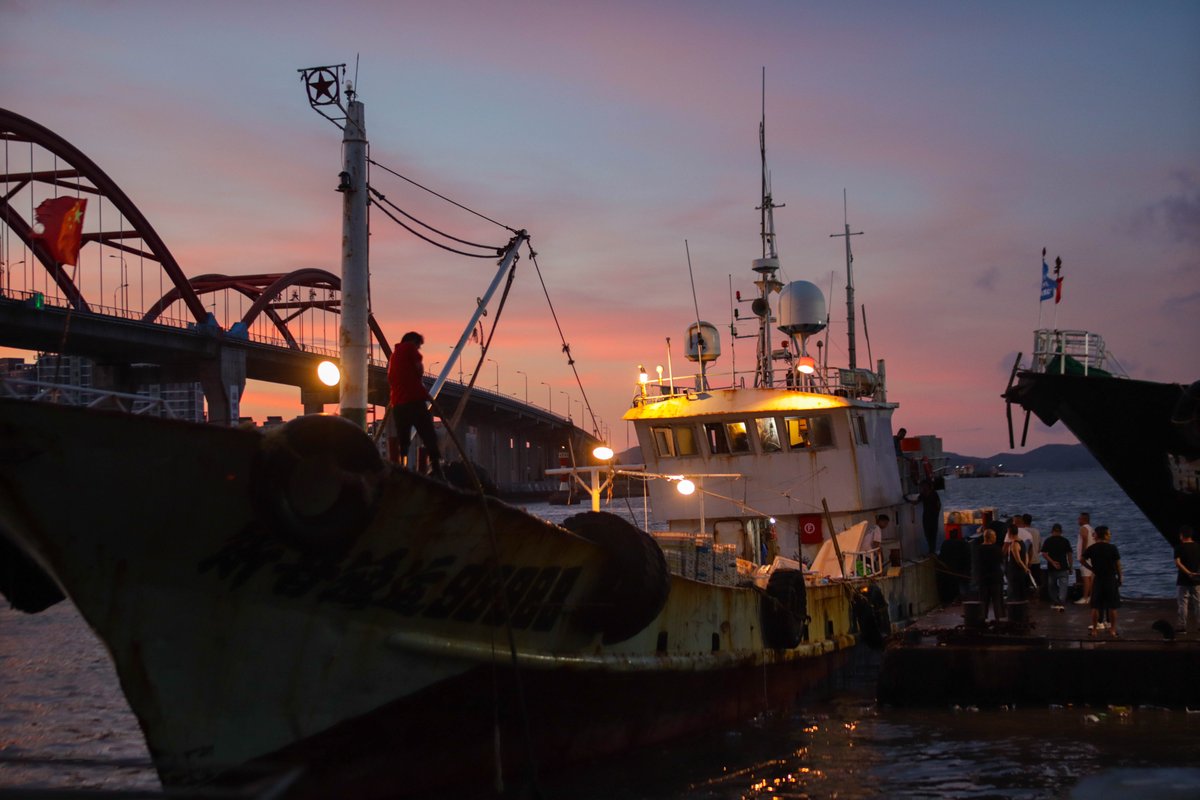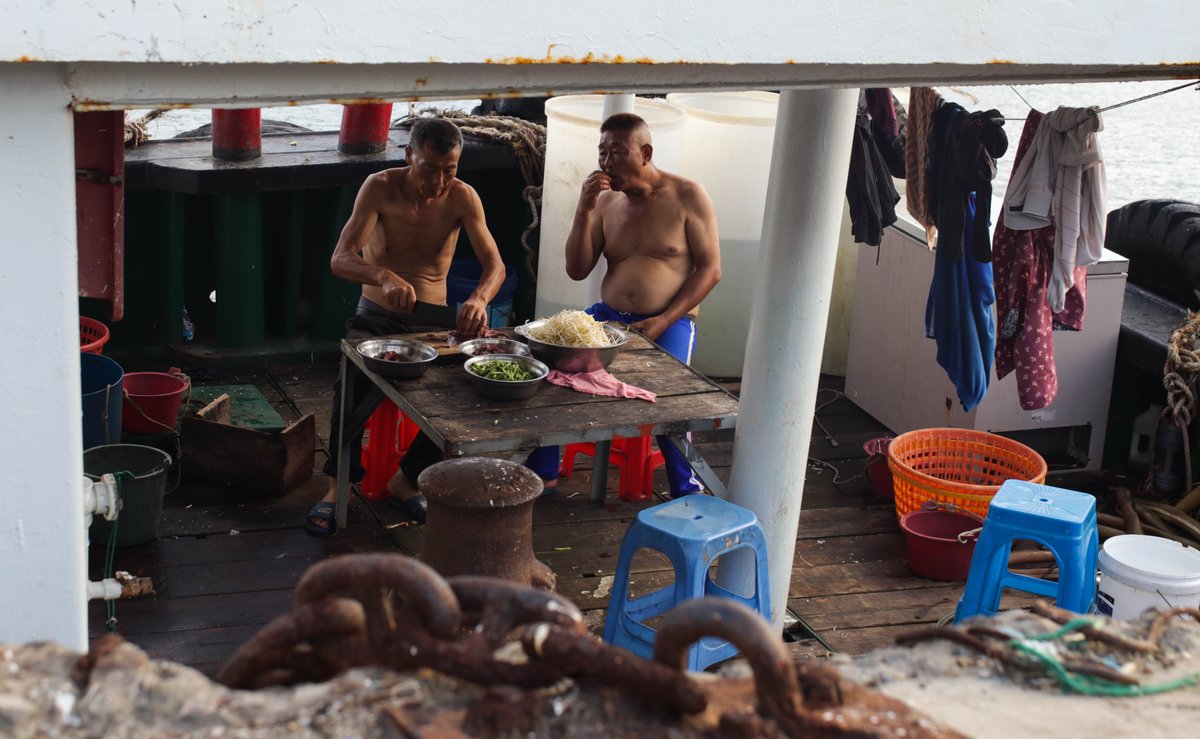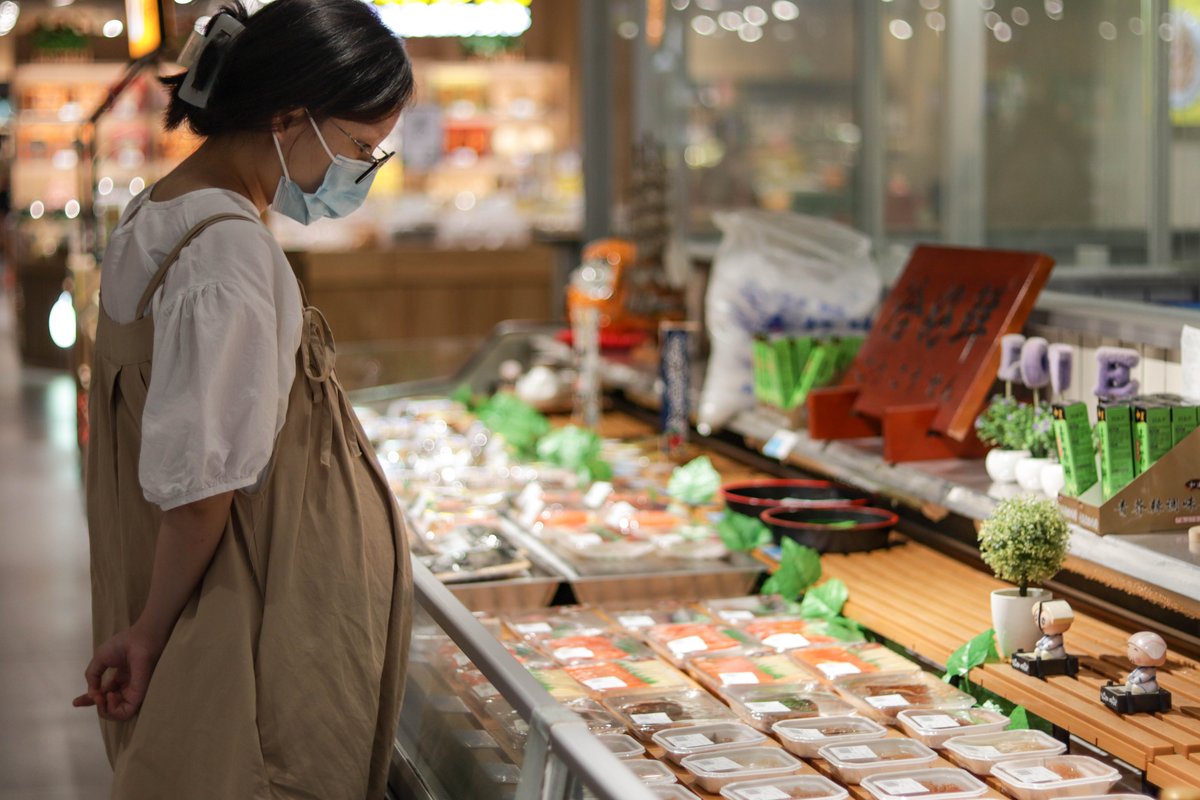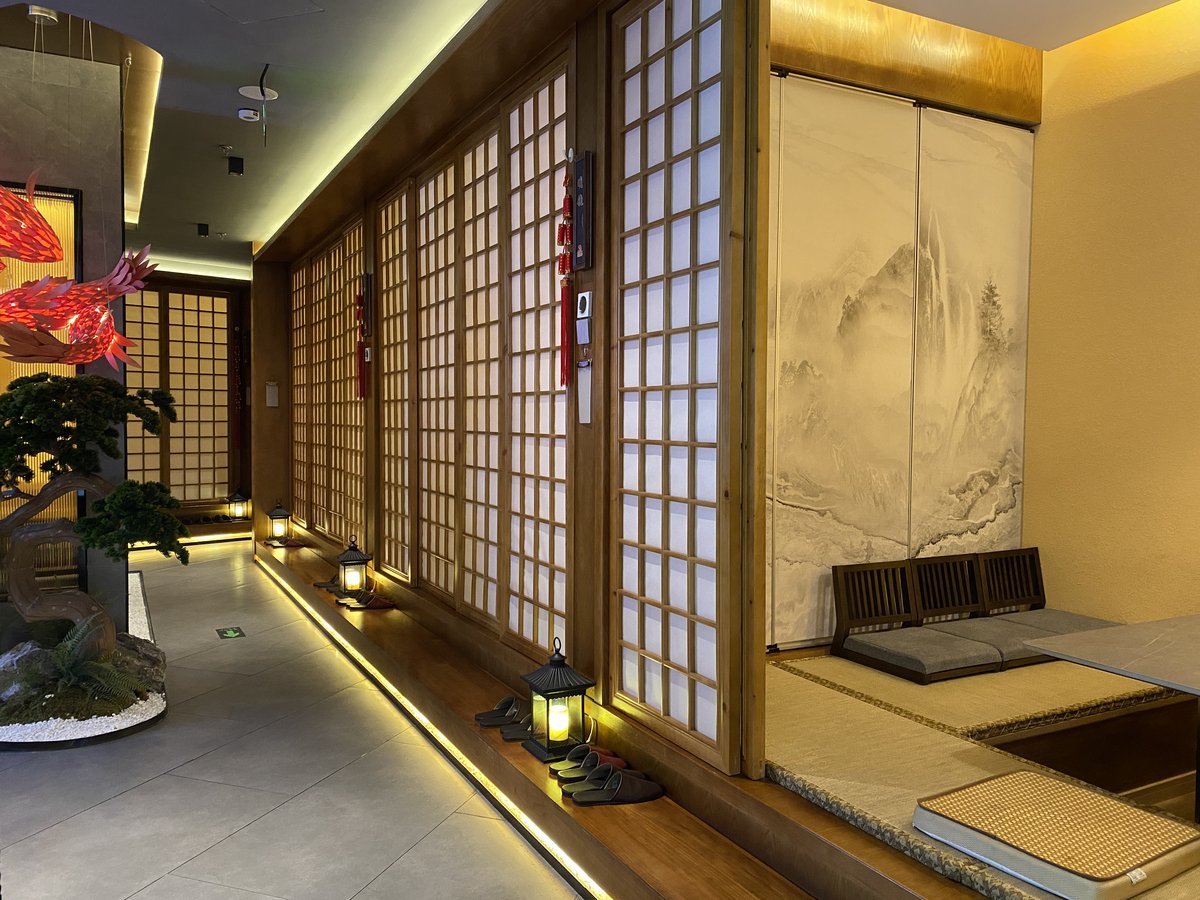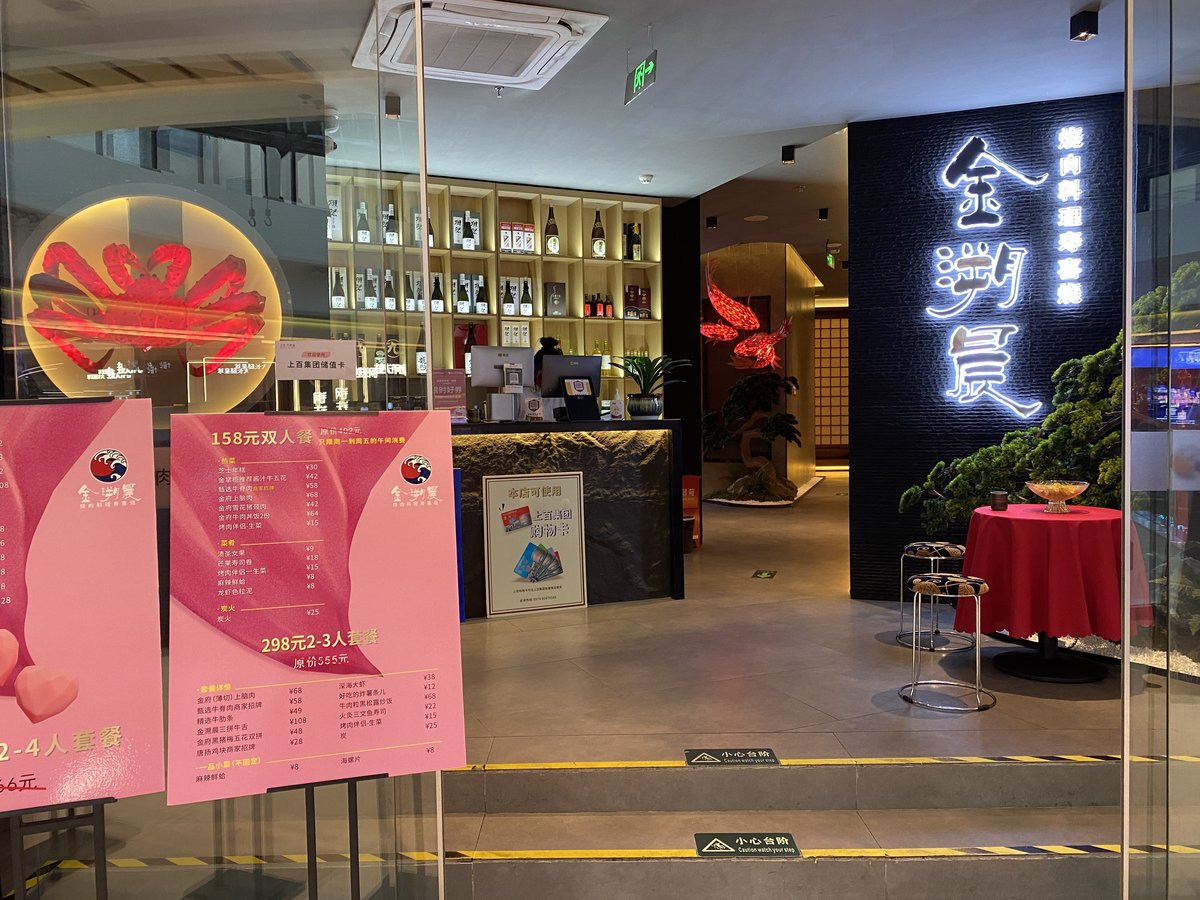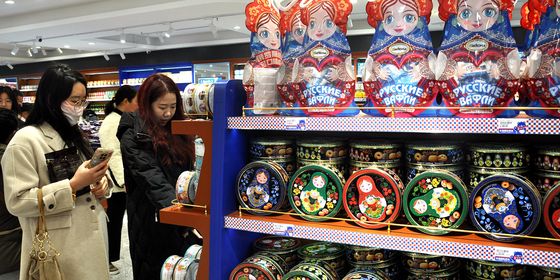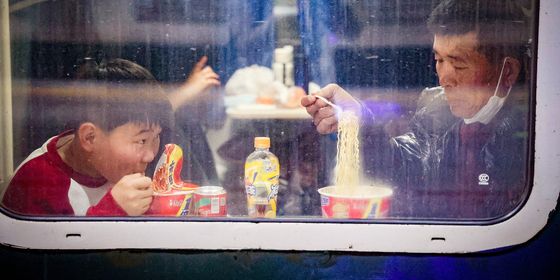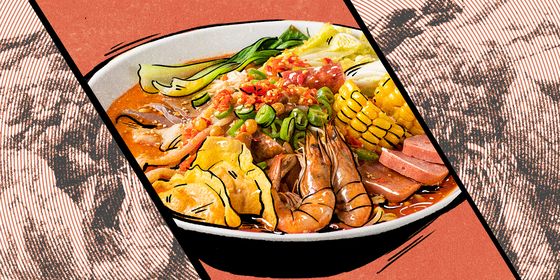Six personal tales of life in the wake of Fukushima’s nuclear wastewater release
Twelve years after a deadly earthquake damaged the Fukushima nuclear power plant, Japan started releasing the radioactive wastewater from the facility into the ocean at exactly 12 p.m. Beijing time (13 p.m. Tokyo time) on August 24, 2023, despite objections from China and other countries. The impact of this long-debated decision, officially announced on August 22, was immediately felt by many Chinese people living along the coast of the East China Sea. Panic buying of salt occurred in some areas, while sales of seafood and Japanese cuisine plummeted. Some Japanese food lovers rushed to enjoy what could be their “last Japanese meal” on August 23, one day before China’s General Administration of Customs imposed a temporary ban on importing aquatic products from Japan.
The over 1.3 million metric tons of nuclear waste water Japan accumulated since the large-scale leakage of radioactive substances in March 2011, will take at least 30 years to fully discharge. According to a recent scientific report from a research team at Tsinghua University, one of China’s top colleges, the disposed water is estimated to reach China’s coastal cities in approximately 240 days and spread throughout the whole North Pacific Ocean in around 1200 days. A 2020 study published in Science, one of the world’s most prestigious and widely recognized scientific journals based in America, shows many radioactive substances, such as tritium, in the contaminated water (which though the Japanese government claimed to have “treated”) can harm oceanic creatures and human beings, though specific effects are yet to be thoroughly researched.
While the potential impact of wastewater on the ocean’s ecosystem remains to be seen, the people whose livelihoods depend on it, especially those who work in industries connected to aquatic products, such as fishermen and Japanese restaurant owners, have already faced online abuse for selling ‘contaminated products.’ A survey conducted on August 24 on the social media platform Weibo reveals that out of over 520,000 respondents, 280,000 say they would never eat Japanese food again, while only 47,000 believe that Japanese food in China is safe.
TWOC talked to six people, including fisherman and former Japanese restaurant owner, whose lives and careers have been directly impacted by the discharge of wastewater. Their personal accounts are not meant to represent the whole picture but only provide a glimpse into how Chinese people are responding to the controversial decision.
Zheng Liang, 41, a fisherman from Zhoushan, Zhejiang
The fish price hasn’t been affected yet, but we are afraid it will take a big dive in the near future. Everyone is panicking because no one is willing to buy seafood from Japan now. Although we hunt fish in the East China Sea, the ocean is a whole. If the one part is polluted, it’s all polluted.
The Fukushima wastewater will definitely affect our lives. Experts say the nuclear sewage won’t contaminate the East China Sea for one to two years, but seawater is always circulating and no one knows the exact time. It’s like a sword hanging over our heads, but no one knows when it will fall.
Last year my family bought a new fishing boat for 7 million yuan, and we still have 4 million in bank loans to pay off now. While our loan is not much compared to those of many others, considering the typical cost of a fishing boat at 10 million yuan, we still worry about whether we could earn the money back.
Fishing is almost the only source of income for us villagers on Qingbang Island (a small island under the city of Zhoushan where Zheng and his family reside). People here work in the seafood fishing, selling, and shipbuilding businesses. I’ve been fishing for twenty years, starting as a teenager, and my parents and grandparents are all fishermen too. Now I have a dozen employees and I need to pay them 150,000 every month in total, even during the pandemic when we weren’t allowed to sail for a couple of months.
Our biggest fear is a collapse in fish prices. While fish prices do fluctuate from year to year due to their weather-dependent nature, however, if people are all afraid of eating seafood, it will be catastrophic for us. I believe that if that day really comes, the authorities will take measures to rescue the fishing industry. For example, if radiation is detected in the fish, the authorities are supposed to formulate policies and make financial allocations to help us. After all, there are so many fishermen along the coast of China.
Xiao Lan (pseudonym), 21, a college student from Weihai, Shandong
My father has been working as a fisherman in Weihai, Shandong for about twenty years to support our family. He does business primarily with retailers.
The incident has been brewing quite intensely. Though the nuclear wastewater hasn’t reached China yet, it has already sparked panic among people. Previously, my father could sell what he caught during his fishing trip for at least three to four thousand yuan, and sometimes even over ten thousand. However, since the discharge of wastewater started, his income has plummeted to only half of what it used to be. My father feels anxious and confused, and our family is falling into a state of panic. His employees are already worried about whether my father can pay their salaries on time.
I remember when my father first heard the news. He looked very worried but still reassured us that he would continue to work and would look for other jobs if the industry deteriorates in the future. Since August 24, he has been working longer hours than before and actively following related reports and updates online. Some customers are now expressing their concerns about seafood safety, and my father had to spend a lot of time and effort reassuring them of the quality of his products. But in the end, they would just turn around and walk away without saying anything or use this as a bargaining tactic.
The local government hasn’t provided us with any support. But the only help we really need right now is for people to stop exaggerating the issue so we can continue selling our products as we did before.
I shared my experience on Xiaohongshu, where I received lots of heartwarming comments, many of which were from fishery families like mine. We encouraged each other, but there were still some heartless comments like “[The fish] is not safe to eat, I won’t buy it no matter what you say.” I asked the person why they would say such things but didn’t get any response. I removed the comment so my father wouldn’t be heartbroken over it. Fishermen are completely innocent victims in this case. I don’t know why people are still attacking them during this difficult time.
I still remember when I was about eight years old, my father would always take me sailing on his ship. There was no internet, no toys, and my father was quite busy so I was always bored. I wasn’t a big fan of the sea back then, but now I just feel frustrated and helpless whenever I think about the ocean. The ocean has nurtured so many lives but is now on the verge of destruction due to nuclear pollution. I’ve never wanted to cry so much.
Wang Weinan, an eight-month-pregnant Japanese food lover in Shaoxing, Zhejiang
I was a big fan of Japanese food, especially sushi and sashimi, and I used to go to Japanese restaurants at least once a month. Since I got pregnant, I had to watch my diet and stop eating raw fish.
After hearing the news, I think I won’t buy any Japanese sashimi even after my kid is born. I don’t want to risk the life of myself and my family.
Now I just scratch the itch by watching freshly sliced salmon and tuna in the supermarket. The Japanese food freezer counter used to be the place where I spend the most time, but now I’ll just take a look and walk away.
As a doctor working in the hospital, it’s hard for me to ignore the public health risks posed by nuclear effluent. It’s understandable that people are angry and cursing the Japanese government.
In the future, I will think twice before purchasing any seafood. No matter how much I love sashimi, the health and safety of food come first. As nuclear pollution spreads, I probably won’t be buying any seafood even if it’s sourced from China.
Zhao Da (pseudonym), 32, a former Japanese restaurant owner in Dalian, Liaoning
Even before the Japanese government started dumping nuclear wastewater, I had already decided to close my restaurant on August 20 due to a sharp decrease in consumer traffic. Even with Covid restrictions lifted, lots of Japanese restaurants aren’t performing well, especially for those long-established ones that have managed to survive the past three years like us.
After five years of operation, I announced our closure on Xiaohongshu. I have since received hundreds of comments claiming that our closure is linked to the nuclear wastewater release, with many suggesting that we open a Chinese-themed restaurant. Some of my customers even praised my decision to be timely, maybe that’s how people can feel a stronger sense of national righteousness.
I don’t think these people have any experience in starting or running businesses. I just want to ask them: If I were to open a Chinese-themed pub, would that mean I’m trying to use people’s patriotism to make money? I just feel like whether it’s French food, Japanese food, or Korean food, what we need to do is to make sure it’s healthy and delicious.
I think we need to approach the situation more rationally. Like decades ago when the tension was high between the two countries over the ownership of Diaoyu Island, some people vandalized Japanese cars. I don’t think that’s necessary since it’s Chinese people who bought those cars, and they’re the only people hurting, not the Japanese. Likewise, Japanese restaurants are also owned and operated by Chinese people.
Some owners had to make announcements about the origins of their seafood to reassure the customers, but I don’t think it will improve the situation. It’s not something that owners can solve through mere words. As an insider of the business, I know our seafood comes mostly from local sources because imported seafood tends to be expensive in Dalian. For example, most salmon are from northern European countries including Denmark and Norway, instead of Japan. For some upscale Japanese restaurants where the average per capita expenditure is around 1,000 yuan, you may find some seafood that is actually imported from Japan. But for more affordable restaurants with an average of 100 yuan per capita, it’s unlikely that they have any imported seafood due to cost limits.
What concerns me most now is whether domestic seafood will be affected by the nuclear wastewater as well. It’s not just about where the products come from that decides whether we can sell them. I can’t say that because our ingredients are not imported from Japan, they’re safe to eat.
The whole restaurant industry has been struggling recently as we try to make up for our loss during the pandemic. The financial pressure on us is huge. Now all of a sudden, people start to boycott Japanese food, cutting off our cash flow. That’s why a lot of restaurants are closing now. The recent wastewater incident is more like the straw that broke the camel’s back as this is already a challenging time for us.
Ma Na, 20, Japanese restaurant waiter in Shaoxing, Zhejiang
These days the question our customers ask most is about the origins of the food we sell. Many customers will look at our menu and leave when they find we’re a Japanese food restaurant even though we don’t have any ingredients imported from Japan. Our specialty is sukiyaki, a popular Japanese hot pot dish. The wagyu beef and salmon we use are all imported from France, and our vegetables are locally produced in China. As a waiter, I need to explain to my customers where the ingredients come from and convince them that they are safe.
The restaurant was only opened less than one year ago and we get about 10 to 20 tables a day. The number will be higher during the holidays. It is considered to be an upscale Japanese restaurant, so we had originally planned to import some seafood from Japan because it’s more expensive and the price per customer would go a bit higher. We have since canceled that plan as people are not interested in Japanese seafood anymore after the release of nuclear wastewater. If the market continues to get worse, I suppose our boss may shift our focus to maybe beef and pork barbecues.
Yu Tiancheng, 35, general manager at a seafood company called Beijing Octosky Food, Beijing
We mainly import aquatic products from northern Europe, with only a small fraction from Japan. Therefore, the ongoing controversies over Japan’s discharge of nuclear water have not impacted us much. The sales of products from South Pacific countries seem fine at the moment too, though the Japanese products valued at around 150,000 yuan we already imported before August 24 may lay in the stock for a while.
I think the current public resistance is basically against all Japanese products, not only aquatic ones. I can understand people’s anger, but I hope that, through media coverage, people can have a better and more scientific understanding of the incident and its impact on food safety. For instance, many Japanese food restaurants mainly use ingredients from China or countries and regions around the South Pacific or the North Atlantic Ocean. Only some high-end restaurants may import Japanese Jack Mackerel and Beryciformes, a kind of ray-finned fish, from Japan.
At this point, some people may try to stock some domestic aquatic products, driving up their prices. But this isn’t a long-term solution as some shrimp and fish species can’t be found in Chinese water. Not eating seafood anymore is not the answer either, as it provides essential nutrition for the human body.
The released nuclear water will certainly influence our lives, but we can rely on science and technology, such as examinations and inspections from authorities, to ensure food safety. As a supplier, we sell our products to restaurants, supermarkets, or consumers online with safety certificates from authorities. For crab sticks, oyster meat, and other products we already imported from Japan, we’ll have to wait and see how the incident will develop in the coming month or two. If the public is still reluctant, we may choose to make them into fish porridge or other stuff to cut the loss.





